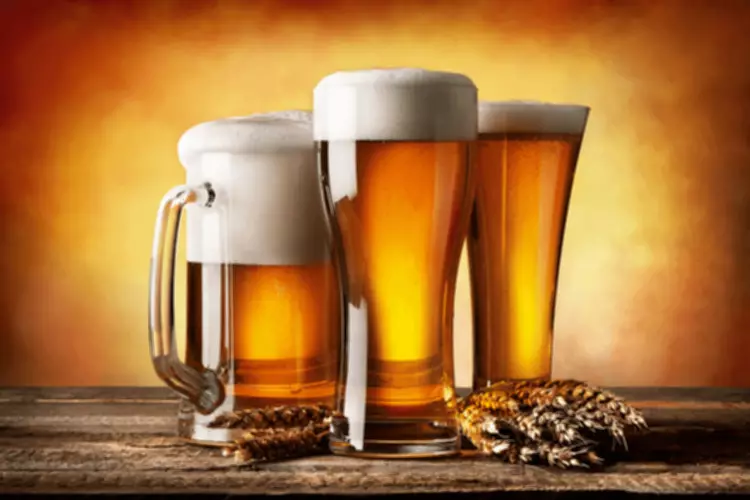Content
The first goal of treatment is to keep you comfortable by managing your symptoms. Your doctor’s treatment goal is helping you stop drinking as quickly and safely as possible. If you have a drinking problem, it is best to stop drinking alcohol completely. Total and lifelong avoidance of alcohol (abstinence) is the safest approach.
Alcohol addiction rehabs offer a safe, secure and comfortable environment during the withdrawal phase. Outpatient rehab allows patients to attend to their daily responsibilities while in recovery. This option is best suited for those with less severe forms of alcohol abuse since individuals will be around drinking triggers and other influences. Alcohol affects multiple bodily functions that results in https://ecosoberhouse.com/ when attempting to stop. First and foremost, excessive drinking excites and irritates the central nervous system.
What is alcohol withdrawal?
To sum up this vicious cycle, if we think of the brain as producing regular gas to run itself normally, alcohol is like jet fuel that quickly outpaces the brain’s fuel production abilities. Eventually, the brain decides to stop making its own gas and becomes dependent on the jet fuel being provided. However, the brain was not designed to run on jet fuel, and eventually, the “engine” of the brain begins to burn out because of it. This leads to malfunctions in the engine, which we refer to as symptoms. Always consult your healthcare provider to ensure the information displayed on this page applies to your personal circumstances.
- Methanol is rarely ingested as an ethanol substitute but can result in multisystem organ failure, blindness, and seizures.
- Benzodiazepines carry a Food and Drug Administration boxed warning because there is a risk of dependence.
- If you need help finding a primary care doctor, then check out our FindCare tool here.
- In all cases, the management of alcohol withdrawal is monitored and managed by an interprofessional team to ensure good outcomes.
Alcohol withdrawal symptoms occur when patients stop drinking or significantly decrease their alcohol intake after long-term dependence. Going through medical detox is the vital first step in recovering from alcohol use disorder. While the journey includes many other steps, they can’t be completed until this first one is completed. The recovery can’t move forward until a person has reduced their physical dependence and overcome the alcohol withdrawal symptoms. One of the most clear signs of alcohol dependency is experiencing alcohol withdrawal.
Home care
The following list of medications are in some way related to or used in the treatment of this condition. Gortney, J.S., Raub, J.N., Patel, P., Kokoska, L., Hannawa, M., & Argyris, A. Once alcohol is fully cleared from an individual’s system, they can begin to address the issues that fuel the addiction. And, ultimately, regain their health, freedom, and genuine enjoyment of life.

However, healthcare workers should be aware that alcohol withdrawal symptoms can be severe and lead to death. In all cases, the management of alcohol withdrawal is monitored and managed by an interprofessional team to ensure good outcomes. The prognosis often depends on the severity of alcohol withdrawal syndrome. With alcohol withdrawal, seizures are among the most concerning symptoms, as they can result in fatality.
Addressing Alcohol Withdrawal during the COVID-19 Pandemic
You may need to get fluids intravenously, or through your veins, to prevent dehydration and medications to help ease your symptoms. Call your provider or go the emergency room if you think you might be in alcohol withdrawal, especially if you were using alcohol often and recently stopped. Call for an appointment with your provider if symptoms persist after treatment. Alcohol withdrawal symptoms tend to occur within 8 hours after the last drink, but can occur days later. Alcohol withdrawal refers to symptoms that may occur when a person who has been drinking too much alcohol on a regular basis suddenly stops drinking alcohol.
Eventually, the brain adapts to chronic alcohol use to the degree that alcohol no longer provides it the same effect without more and more alcohol being used. When someone develops a high tolerance for alcohol, they must drink increasingly more for the same effect. However, this eventually becomes impossible to maintain as dopamine, serotonin, and GABA all begin to deplete from constant overstimulation. This is a very uncomfortable feeling and is the process that drives severe alcoholism and alcohol addiction. Typically, people who experience alcohol withdrawal are those who have an alcohol use disorder (AUD), as their body has developed an increased tolerance and has become psychologically dependent on alcohol. With mild to moderate alcohol withdrawal, a person may see symptoms resolve in about two to seven days.
When to Contact a Medical Professional
Depending on the severity of your alcohol abuse, PAWS can last anywhere from a few weeks to a year. Many individuals choose to complete their alcohol detox within an inpatient setting, such as a hospital or a freestanding treatment center designed for detoxification from substances. Others may have the option to complete their detox through an outpatient setting depending on the severity of their symptoms and the medical provider’s judgment. Either way, having medical guidance and support is essential to navigating to a healthier future in alcohol addiction recovery.
Minor alcohol withdrawal is characterized by tremor, anxiety, nausea, vomiting, and insomnia. Major alcohol withdrawal signs and symptoms include visual hallucinations and auditory hallucinations, whole body tremor, vomiting, diaphoresis, and hypertension (high blood pressure). Diazepam (Valium) and chlordiazepoxide (Librium) are long-acting agents that have been shown to be excellent in treating alcohol withdrawal symptoms.
Alcohol withdrawal occurs when a person with an alcohol dependency either abruptly ceases or gradually stops drinking alcohol all together. We’re here 24/7 to help guide you or your loved on through rehab and recovery. This is so your doctor can monitor your condition and manage any complications.
